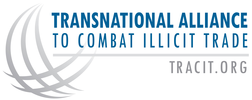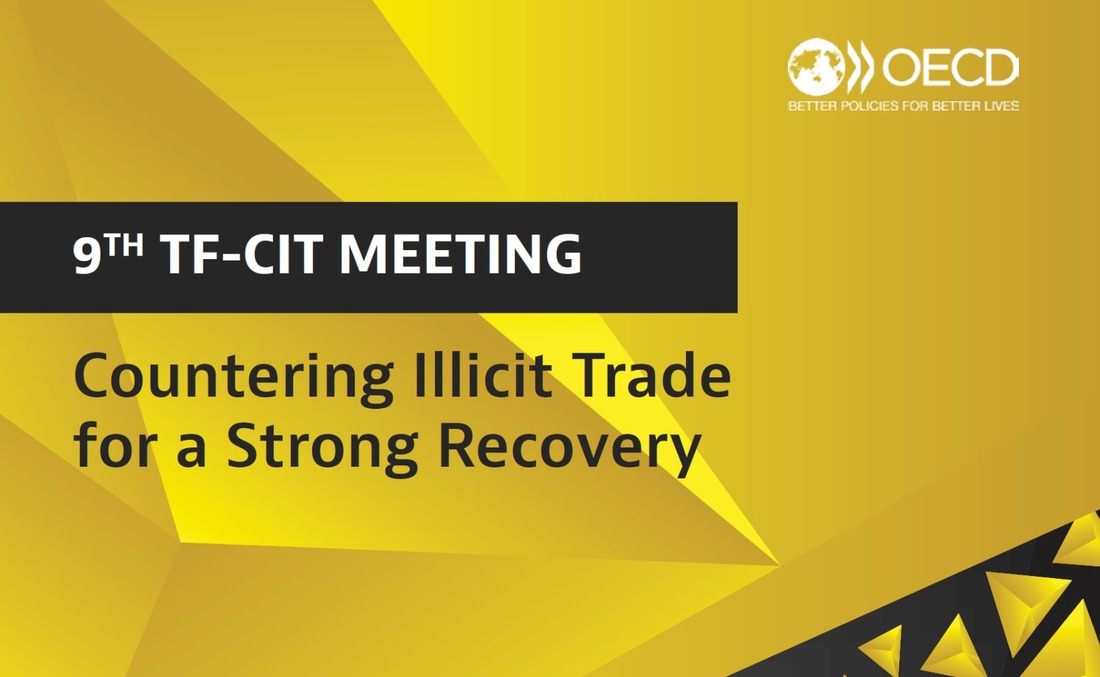The new report shows that containerships carry more than half of all seized counterfeits and provides an urgent and compelling need for governments to set new standards for mitigating the abuse of international maritime shipping lines by illicit traders.
The Task Force meeting also addressed high-risk areas of the economy—pharmaceuticals, alcohol, food, tobacco and counterfeiting online—that were particularly impacted by illicit trade during the pandemic, and the need to evaluate best practices to improve regulations and mitigate the problem. Moving forward, TRACIT believes the Task Force should build upon the impressive body of quantitative work to more effectively deliver on its High Level Risk Forum mandate to ‘design and promote good practices in public policies as a means to reduce and deter trafficking and smuggling activities,’ and to map policies and practices and develop metrices on the governance gaps that foster illicit trade. This includes cultivating the work of the task force within OECD member governments – to ensure that work is directed to the right national agencies and that messages and guidance properly percolate throughout national capitals. For example, the OECD Council’s Recommendation on Countering Illicit Trade: Enhancing Transparency in Free Trade Zones contains much-needed guidance for OECD member states. Success here will depend on work engagement, adoption and implementation by OECD governments. The OECD has changed the game here, now it’s time from member state to see it through. The Task Force should also look at ways to increase engagement and share its experience with non-OECD Member States that value the expertise of the OECD and look to it for leadership and guidance. This includes regions such as ASEAN, which is in the process of addressing illicit trade and establishing its own policy standards. Finally, I was pleased by the continued engagement with the private sector - especially those legitimate industry players most impacted by illicit trade. Industry partners represented by the Anti Illicit Trade Expert Group of the Business at OECD share the common goal of countering illicit trade and provide critical market knowledge, supply chain expertise and technical innovation. The ongoing public-private sector dialogue ensures a more effective approach to countering illicit trade by balancing incentive setting, taking into account industry-specific sensitivities and competitive advantages on private and public sides. If there is one thing we have learned from the Task Force’s work and accomplishments over the last nine years is that mitigating the cross-sectoral challenge of illicit trade is going to require an international, coordinated, response by all affected parties – and a lot of hard work! Jeffrey Hardy Director-General, TRACIT Comments are closed.
|
About tracit talking pointsTRACIT Talking Points is a channel we’ve opened to comment on current trends and critical issues. This blog showcases articles from our staff and leadership, along with feature stories from our partners in the private sector and thought-leaders from government and civil society. Our aim is to deepen the dialogue on emerging policy issues and enforcement measures that can be deployed against illicit trade.
Categories
All
Archives
February 2024
|
|
Transnational Alliance to Combat Illicit Trade (TRACIT) is an independent, non-governmental, not-for-profit organisation under US tax code 501(c)(6).
© COPYRIGHT 2024. ALL RIGHTS RESERVED. |
Follow us
|

